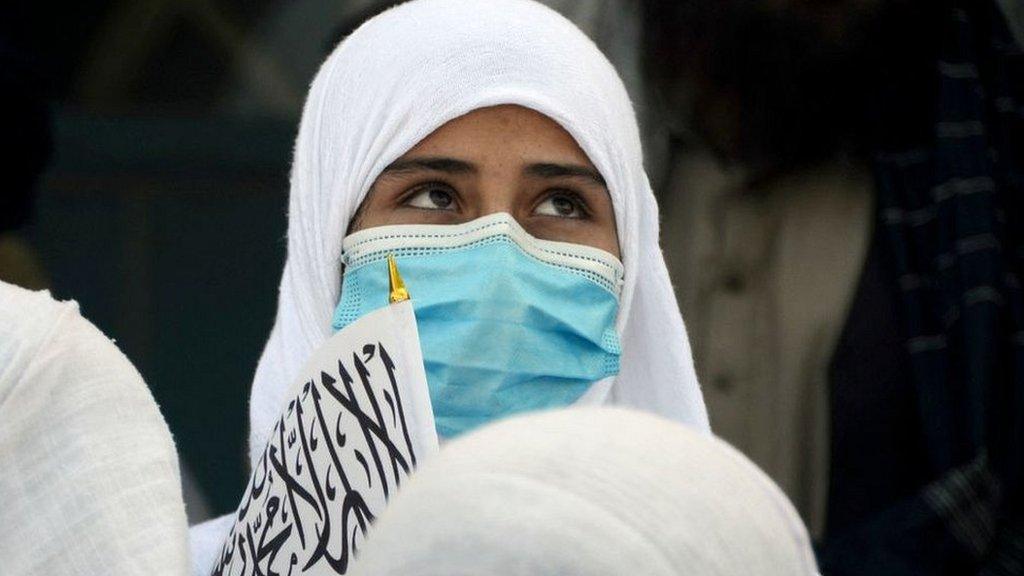Ex-BBC Afghan journalists may be evacuated to UK after legal challenge
- Published
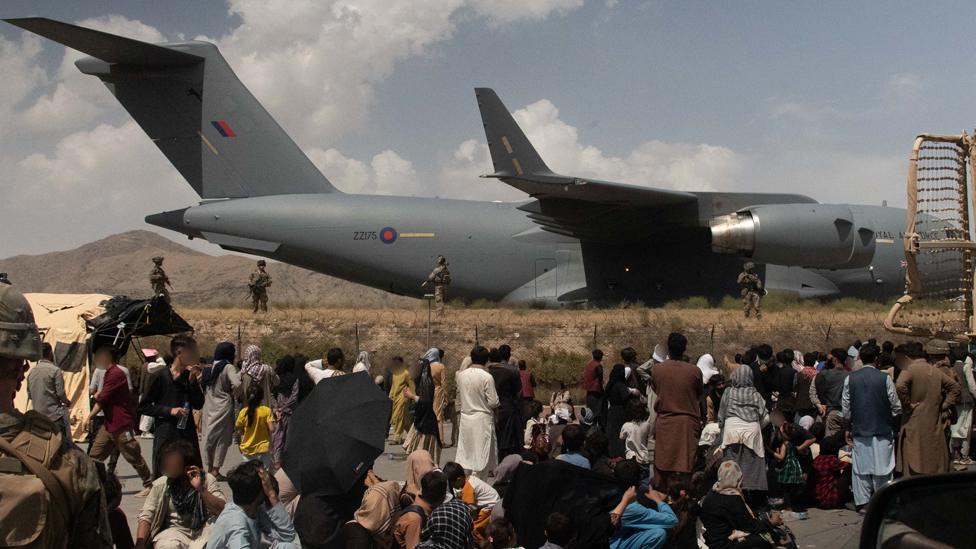
Evacuation: 21,000 have been taken out of Afghanistan since August 2021
Eight Afghan journalists who worked for the BBC could be evacuated to the UK after a judge ordered ministers to reconsider their plight.
The group has spent more than a year in hiding in Afghanistan after they were left behind during the August 2021 British withdrawal.
Ministers had rejected their cases, a year after receiving the applications.
One of the group said on Monday that the Taliban believed he was a spy and had already tried to shoot him.
All eight of the journalists had worked for many years for the BBC in Afghanistan. Some of them had also worked more directly with the British government on projects including democracy and media training. But as the Taliban increasingly took over, they and their families became the target of threats.
The High Court in London was told that one of the journalists had a bomb placed under their car, another was shot at in public - leading to the severe injury of a family member - and two others had been interrogated and tortured in relation to their work for the BBC.
Since August 2021, the British government has evacuated 21,000 Afghans and their families, a group that includes local people who were working for British media agencies.
But when those lists were drawn up, the BBC did not include any of the eight.
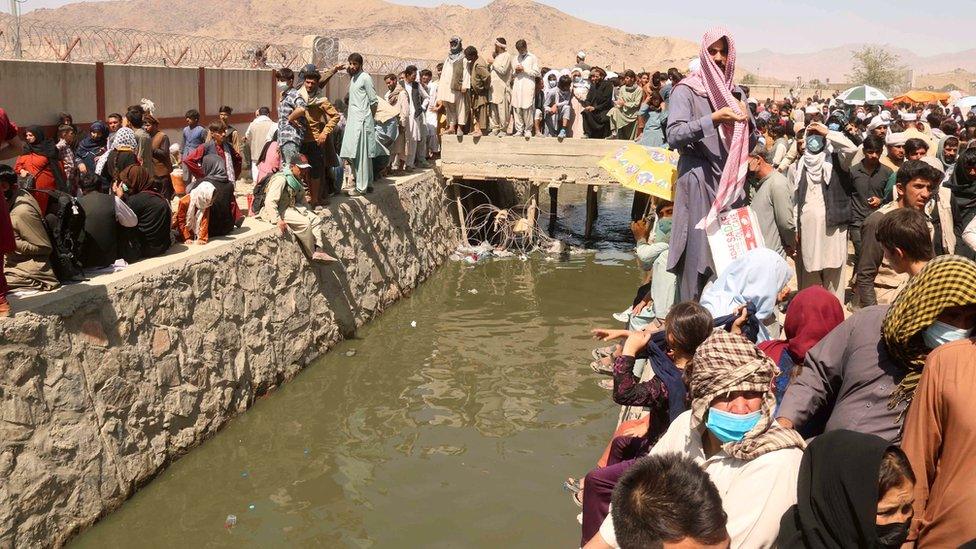
During the mass evacuation, there were chaotic scenes outside Hamid Karzai International Airport in Kabul
Erin Alock, the group's lawyer, said their pleas for help went unanswered for a year.
"When the British evacuated from Kabul, they were not put forward for evacuation by the BBC, because they weren't employed at that time," she said.
"They were left behind. But the work that they were doing did go to British objectives in Afghanistan, those objectives weren't just military objectives. They were things like promoting democracy."
When their applications were eventually considered, ministers refused to resettle any of them because officials concluded their work wasn't directly connected to UK operations.
On Monday, a judge said those rejections had not taken into account how the Taliban perceived the BBC and anyone associated to it.
Had government case workers recognised this risk, said Mr Justice Lane, there was "more than fanciful prospect" that the eight would have been allowed to come to the UK.
'Targeted as spy'
One of the group, who was shot at in the street by a Taliban gunman, thanked the judge on Monday for intervening. The BBC is not reporting specific threats he has experienced because of the risk of identifying him.
"We have regularly changed our house - my children have been to different schools," he said.
"Day by day, journalists and human rights activists are being followed by the Taliban authorities. They see the BBC as the enemy, some kind of spy agency.
"The Taliban authorities have been very severe with national journalists who, like me, have worked with international media.
"Any of us who have worked with the British or American media are under a serious threat.
"I just want to thank the judge for reversing this decision."
Ministers now have 21 days reconsider each case - a move that the group hopes will lead to their evacuation.
A spokesman for the government said it would consider the judgment - but has given no immediate commitment to evacuate the group. Officials said there may still be 300 people plus family members in Afghanistan who need bringing to the UK.
Related topics
- Published28 August 2021
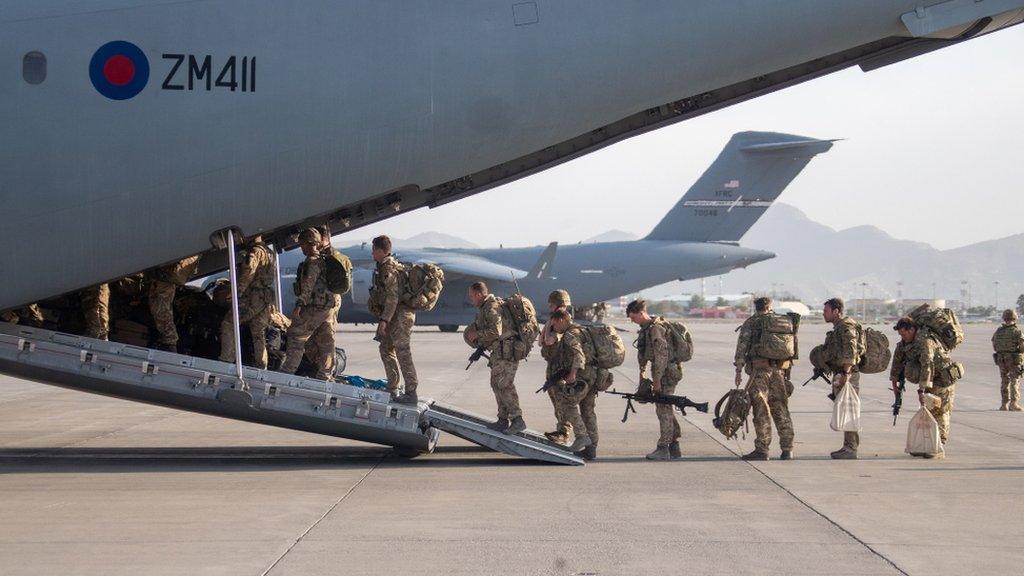
- Published15 August 2023
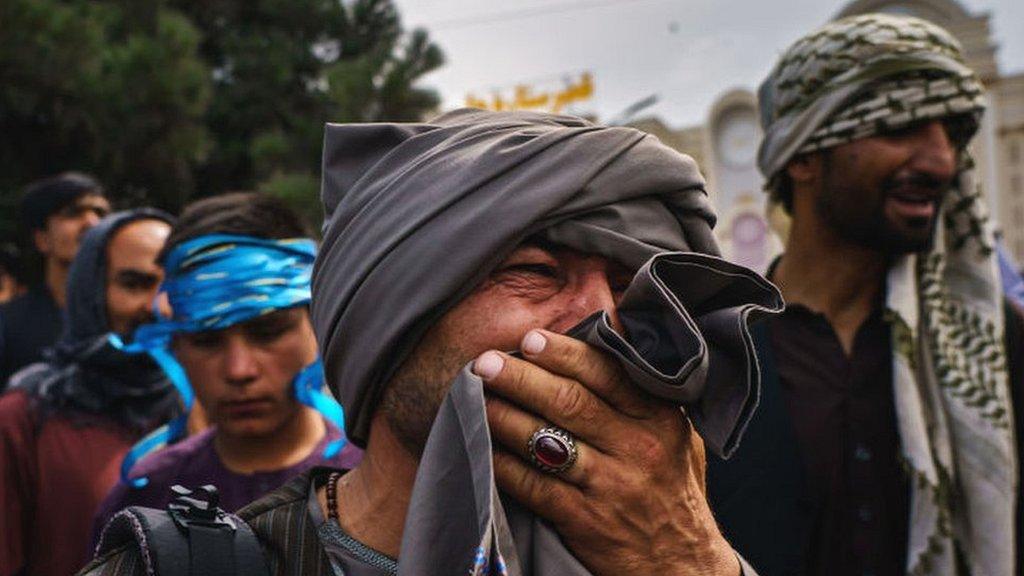
- Published14 August 2023
